
Focusing on key scientific questions about microbial evolution and interacting mechanisms between microbes and corresponding environment, the Center for Quantitative Synthetic Biology (CQSB) has deployed two main research directions, which are theoretical foundation and enabling technology, and conducted extensive explorations in practical applications as well. In order to exploit the combination of quantitative technology and synthetic biology, the center has attracted multidisciplinary and complementary groups from synthetic biology, microbiology, physics, bioinformatics, microfluidics, and proteomics and so on, with more than ten outstanding young Principal Investigators and about 200 researchers.
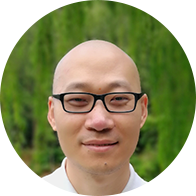
The research interest in his lab currently focuses on bacterial cancer therapy, bacterial cell cycle, and directed evolution.

Focusing on the application of quantitative analytics and advanced instrumentation from physics and engineering to biological study, to facilitate our design ability of living system.

Integrating approaches in genomics, computational biology and evolutionary biology to understand the clonal evolution in somatic tissue and cancer.
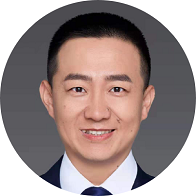
Research on synthetic biology methodology based on micro-nanometer and high-throughput detection and analysis technology
The development of genomics over the past decades has given us more comprehensive and in-depth understanding of the genetic information of various organisms, thus opens up a treasure trove of valuable genetic information. Synthetic genomics emerges, and it aims to systematically dissect the biological function of a genome, and create new features for various practical applications through re-design, re-construction, and de novo synthesis of the entire genome.Through precise design and accurate synthesis of the genome, master the basic principle of biological systems, reveal the essence of life activities, and eventually accomplish the strategic transformation of life science from qualitative to quantitative prediction, precise design, standardized synthesis and precise regulation.

Rebuild plant metabolites biosynthesis pathways in plant-based systems.

The regulation mechanism of epigenetic inheritance; Epigenetic inheritance regulation; The synthetic epigenome-related technologies.
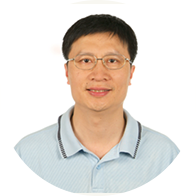
1. Mode of action of artemisinin; 2. Metal homeostasis and diseases in Drosophila models;

Focused on the non-coding genome using various systems. Particular interests include identifying functional non-coding regions during development and under disease conditions, dissection of non-coding genome function by genome redesign and synthetic genomes.
The Center for Synthetic Biochemistry (CSB) is built from cross disciplinary research groups that bring together many outstanding young talents in the fields of microbiology, synthetic biology, materials chemistry, metabolic engineering and analytical chemistry. The center is committed to the development of theories and methodologies useful for the creation of new synthetic biochemical pathways that can meet the needs of market demands and regional strategies. CSB is also engaged in building a cutting-edge synthetic biology technology platform to rapidly engineer the metabolic pathways that already exists in nature (found in fungi, plants, and animals) in synthetic microorganisms that are able to transform cheap raw materials into valuable natural or non-natural products.
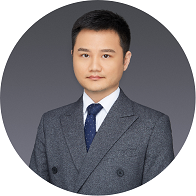
In the basis of big data machine learning and high-throughput automation approaches, explore the biosynthesis approaches of diverse natural products and their derivatives based on big data machine learning and high-throughput automation by combining various biochemical methods of genetic code expansion, directed evolution of enzymes, gene mining and metabolic engineering.
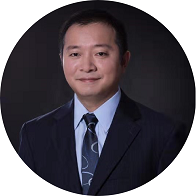
Natural product biosynthesis, structural enzymology, enzyme design

Synthetic metabolism or Metabolic rewiring, Evolution engineering and Metabolic engineering.

Focuses on developing the next generation of biological catalysts that can help meet the ever-growing need for new medicines and new materials, and the next generation of sustainable industrial processes using biology.
Using cutting-edge technologies of synthetic biology, the emerging field of Synthetic Microbiome aims to engineer complex microbial communities to achieve desired function and stability. Rational design and precise modulation of microbial communities holds promise for solving important issues in multiple areas, including human health, sustainable agriculture, etc. The Center for Synthetic Microbiome will create an innovative ecosystem to promote basic research of synthetic microbial communities as well as their applications in medicine, agriculture and bio-manufacturing.
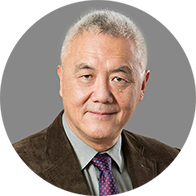
He is particularly interested in systematic and integrative analysis of pan-genomes of microbial taxa with the information of related metagenomes of microbiomes.

Focos on developing quantitative models and synthetic biology tools to engineer microbial communities that play important roles in human health, agriculture and environment.

Our studies are supported by various grants more than ten million Yuan from Shenzhen government and Chinese National Science Foundation.

Using system biology and synthetic biology approaches, we investigate the mechanisms underlying the antifungal resistance and the pathogenesis of the human-associated fungi. We also study the interactions between the fungal and bacterial compartments of human microbiome, and their influence on different physiological and disease processes
Synthetic immunology is an emerging discipline that is highly integrated with cutting-edge immunological theories and modern synthetic biology technology. This has greatly promoted the development of modern theories, technical approaches and product research of immunotherapy for major diseases. The Center for Synthetic Immunology is going to gather pioneers and outstanding young talents in synthetic immunology with the aim to cure tumors, autoimmune diseases, viral diseases, organ transplant and other diseases. Our approach is to provide new opportunities to reshape, renormalize, or rebuild the immune system of the body through immunotherapy. The center aims at applying new synthetic immunology theories and approaches to achieve the immunotherapy of major diseases and large-scale industrial production for treatment. At present, the center team is recruiting research groups in many disciplines including immunology, synthetic biology, structural biology, multi-omics and bioinformatics, biomacromolecule drugs, cell-based therapeutics and tissue or organ engineering.
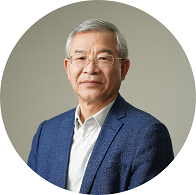
Lab is credited with seminal discoveries regarding basic knowledge and clinical study of NK cells, particularly liver-resident NK cells, cytokine-producing NK cell subsets, and NK cell-based immunotherapy.

Tumor Immunology, Synthetic Immunology, Single cell genomics, T cell biology
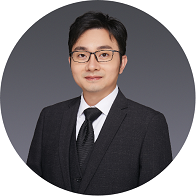
The Shi Lab will focus on systematically decoding signaling network of immune cells by interdisciplinary approach, including novel mass spectrometry technique, to design new synthetic immunology therapeutics.

Infection-Immune-Tumor
The rapid and concomitant development in frontier methods for the controlled synthesis and characterization of biomaterials at the molecular, nanoscale level, combined with the technological advances in reading and writing genomic, proteomic, metabolomic, and epigenetic information, provide a unique set of opportunities to bring together scientists and engineers from these traditionally disparate fields into a common community. Under such circumstances, Materials Synthetic Biology emerges as a new discipline that lies at the nexus of the physical sciences, life sciences, and engineering, where the tools and tactics of materials science and other engineering principles are used to interrogate, manipulate, and generate new functions in biological systems, while at the same time the concepts and components of biology are employed to create new sustainable materials of fundamental interest and societal benefit. Residing in Shenzhen Institute of Synthetic Biology (iSynBio), the newly established Materials Synthetic Biology Center strives to build up an internationally renowned, first-class research hub, where technological innovation and education of the next generation scientists are intimately integrated, and cross-disciplinary collaborations are highly encouraged. The current key research areas of the center include: (1) "Living" functional materials; (2) Semiconductor synthetic biology; (3) Programmable biomaterials and applications in biomedicine, bioenergy and bioelectronics.

Research field: Material Synthetic Biology. Our group’s main research interests include: 1) Living functional materials; 2) Semi-conductor synthetic biology; 3) Programmable biomaterials and applications in biomedicine, bioenergy and bioelectronics.
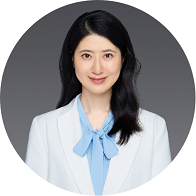
Engineered living materials and synthetic microbial consortia.

Synthetic Evolution

Guangkai BIAN
Living system requires the fundamental capability to sense and process multiplex input signals, and make accurate cellular decisions. Inspired by the electronic engineering, these biological information processing systems are governed by various gene circuits, including signaling transduction, genetic regulation, metabolic and energetic regulation etc., which may function as the "Central Processor Unit" in synthetic living systems. The understanding of the design principle and regulatory mechanism of natural cell and gene circuits, can uncover the basic law of living system, but also establish the substantial theoretical and technological foundation for the intelligent, automatic control in the next generation of engineering biology. Aiming at the crucial scientific challenges and the cutting-edge biotechnology in synthetic lives, our center will focus on the development of "software" in the design of synthetic lives, to promote interdisciplinary biological science and education. In the next five years, our researches will focus on the following directions: 1) the modular design of key biological parts and devises; 2) the development of computational theories and software for the cell and gene circuits design; 3) the development of smart cell and gene therapeutics;
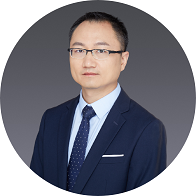
Quantitative cell signaling design, and development of gene and cell drug

1) exploring the design principle in gene regulation, 2) developing genetic tools to control gene expressions, and 3) constructing systems based on model prediction.

Mammalian and viral genetic circuit design and application in vaccine, gene therapy and tissue engineering
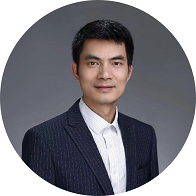
1. Ultrasound contrast agents and their applications in biomedicine;2. Ultrasound-controlled bacterial therapy
Focusing on key scientific questions about the development mechanism of major diseases and correspondingly translational applications, Shenzhen innovation institute of synthetic biology medical center use of synthetic biology technologies to develop innovative diagnosis, treatment methods and individualized treatment applications. The center has deployed three major research fields, which are basic medical research, synthetic enabling technology and translational medicine, and conducted extensive explorations in clinical applications as well. In order to take advantages of combining synthetic biology with medical research, the center has gathered multidisciplinary and complementary groups from synthetic biology, disease genomics, tumor biology, bioinformation, proteomics, metabolomics and so on, with more than 20 outstanding young Principal Investigators and over 200 researchers.
.png)
The main research directions are prostate urogenital system tumors, the pathogenesis of male infertility and translational medical research.

The main research directions are tumor synthetic biology, bladder cancer mechanism and tumor immune cell reprogramming.
Comparing with genome sequencing, which facilitates the digitization of life, synthetic biology has enabled human beings to explore the nature of life and promote the cross-disciplinary applications in medicine, chemical industry, agriculture and IT technologies. Since DNA synthesis serves as the fundamental technology of synthetic biology, the center focus on resolving the bottleneck restrict of synthetic biology key technologies and its instrumental development. The center has attracted experienced talents with overseas and multidisciplinary backgrounds including Synthetic Biology, Chemistry, Molecular Biology, Mechanical Engineering, and Computer Science.

Research directions include the development of sequencing and synthesis technologies and instruments, single-cell sequencing technology, and the application of genome reading and writing technologies in synthetic biology, disease diagnosis and treatment and modern agriculture.

Research focus on the development of DNA synthesis enabling technologies and instrument, Synthetic genomics and its downstream applications, and DNA based data storage.
Center for Agricultural and Plant Synthetic Biology is committed to assembling and nurturing world-class synthetic biologists and engineering professionals, with a focus on crucial agricultural crops, economic plants, algae, agricultural microbes, and the prospective realms of green biological agriculture manufacturing. Applying synthetic biological principles and techniques, the center endeavors to innovate disruptive technologies and products in agricultural synthetic biology. It aims to establish next-generation automated and intelligent factories adept at nurturing genetically improved varieties of plants and algae. This is part of a broader objective to construct a comprehensive innovation ecosystem that encompasses a journey from fundamental research through applied investigation to the fruition of transformative achievements. This orchestrated endeavor is directed towards accelerating the development of innovative crop and algae lineages that epitomize heightened productivity, minimized consumption, superior quality, and enhanced value-added attributes. Such an initiative is instrumental in serving national priorities in food security and promoting the sustainable advancement of green agricultural practices.

Email Address: zb.yang1@siat.ac.cn

Basic and applied research on microalgae with special focus on molecular and cellular mechanisms of lipid and carotenoid biosynthesis. Microalgal biotechnology for food, feed and bioproducts,as well as for wastewater bioremediation,resource recovery and utilization.
.jpg)
Elucidation of molecular mechanisms underlying the auxin-mediated adaptive growth and developmental plasticity; Functional characterization of cyclic nucleotide monophosphates (cNMPs) in plant signal transduction; Plant synthetic biology.